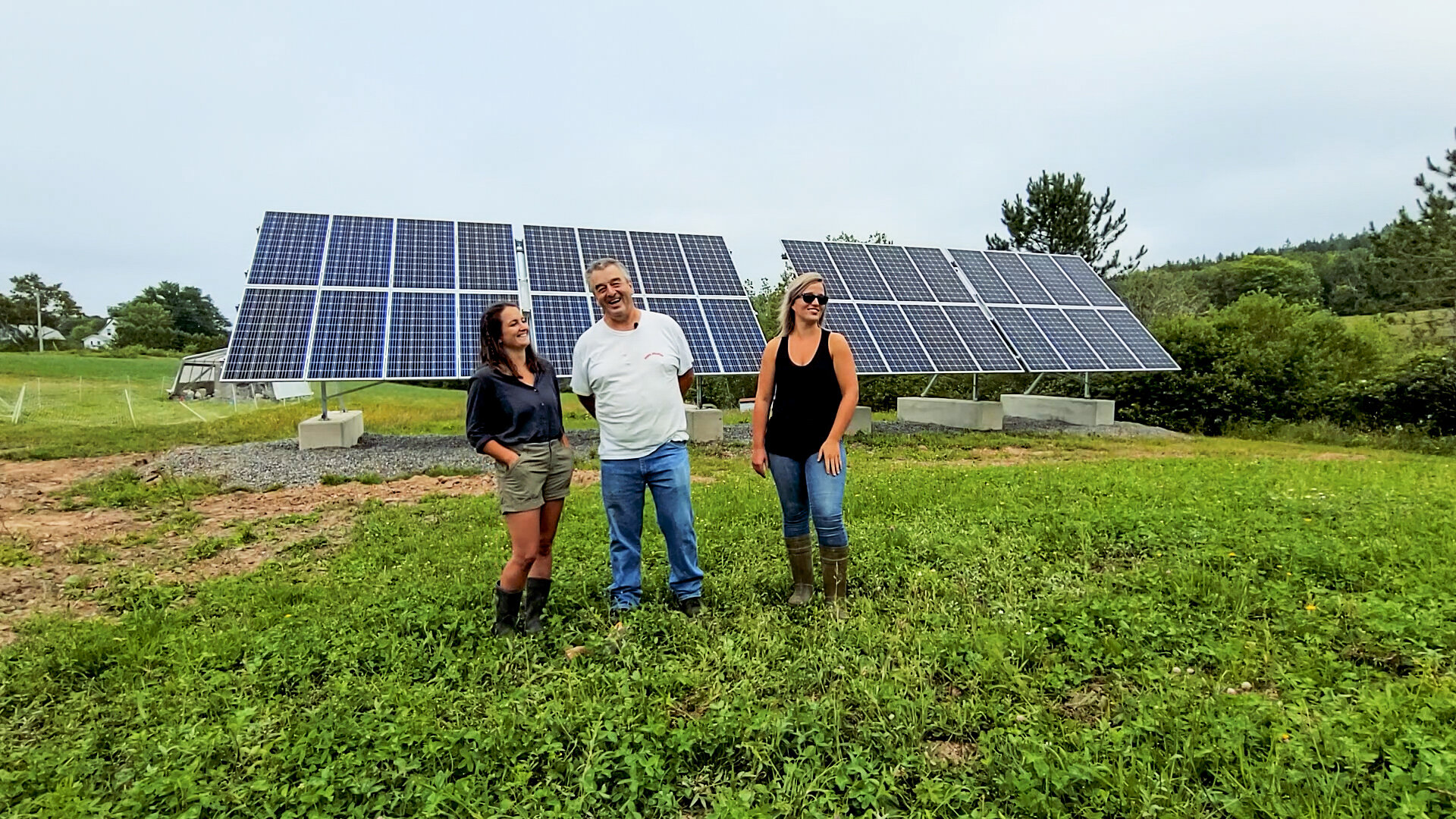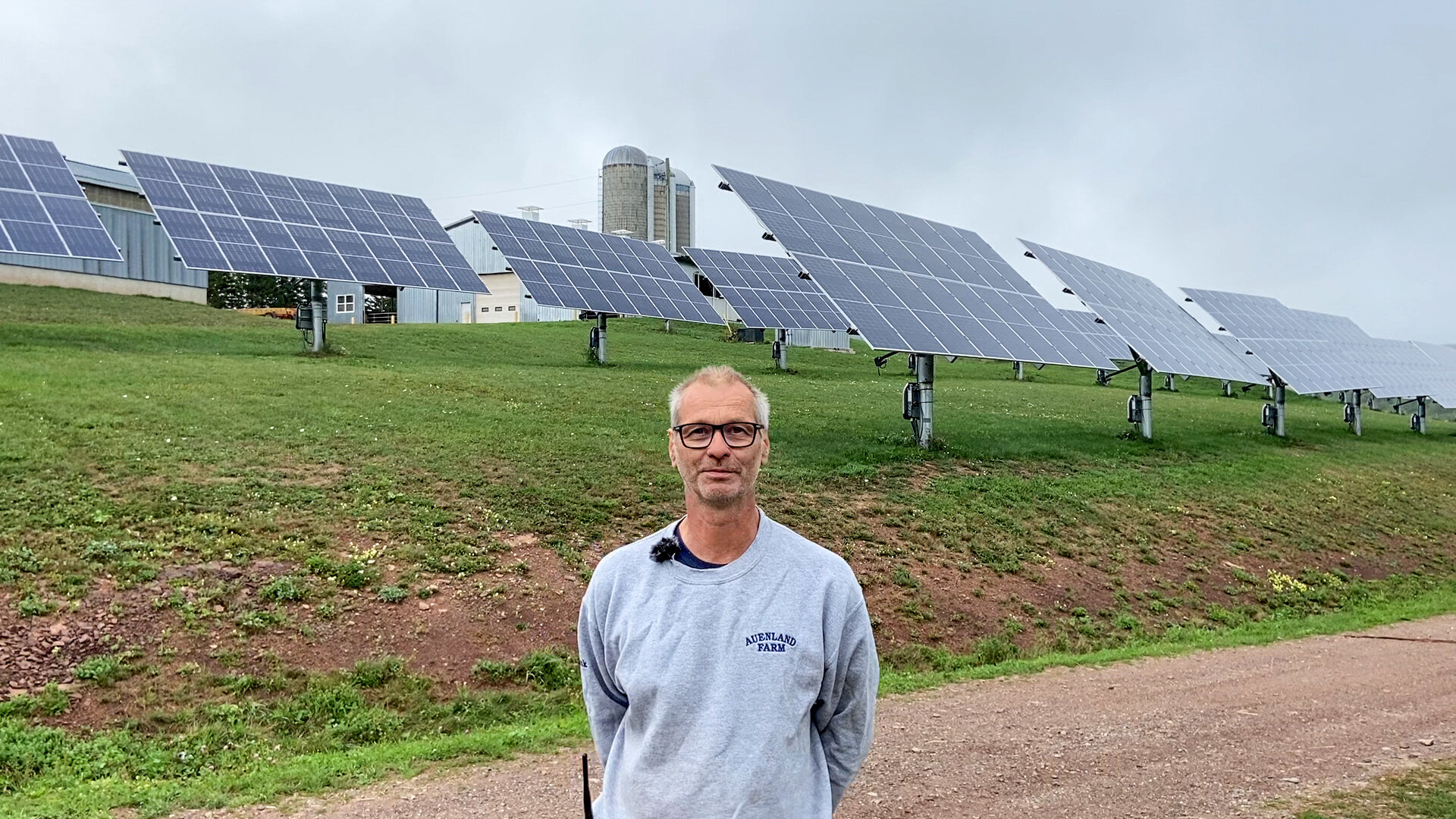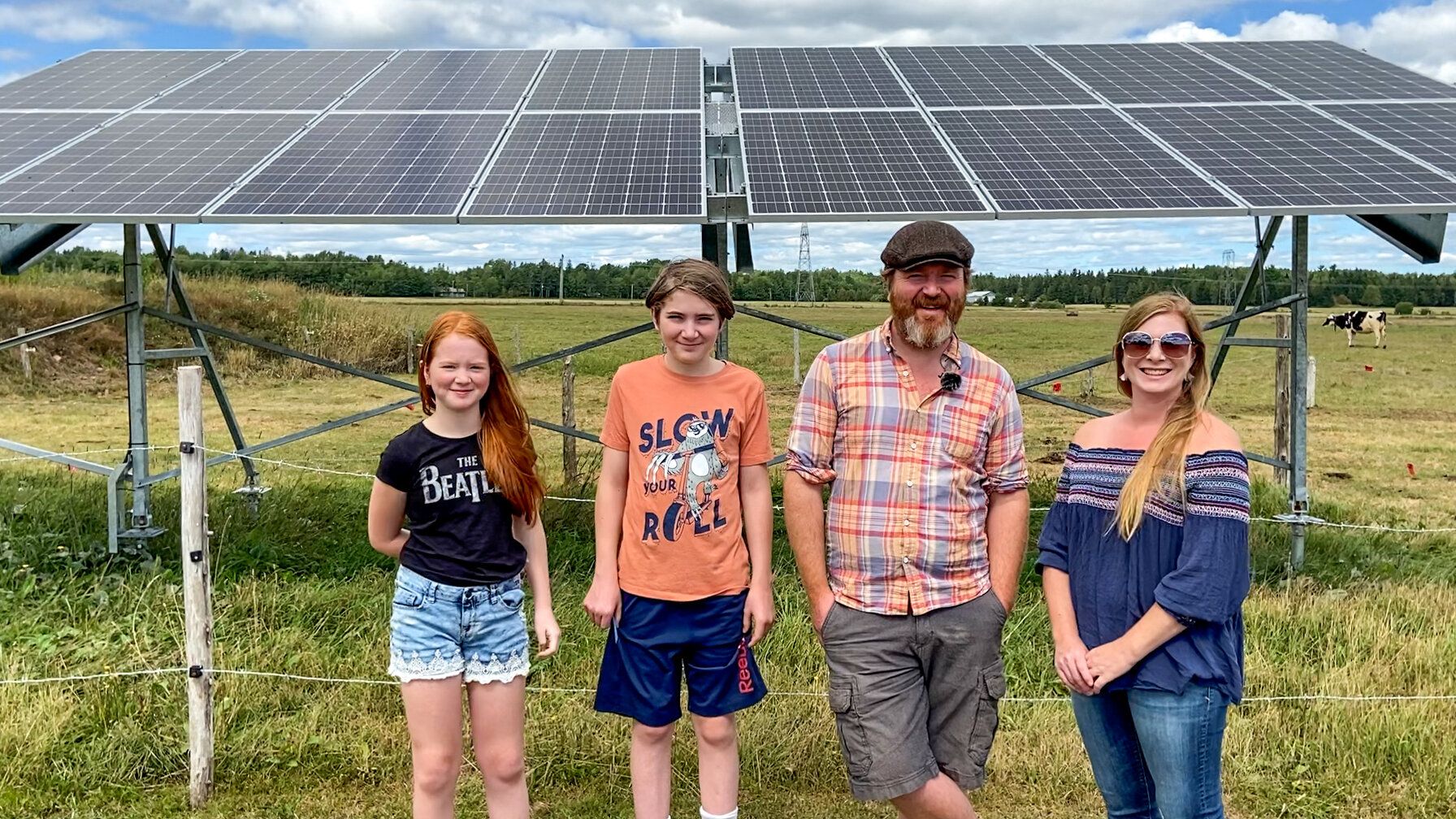Using Solar to Build a More Resilient Farming Community in NB
By: Matthew Conradi
September, 2020
picture this…
If I asked you right now to shut your eyes and imagine what solar energy looks like, what would you see? Initially, I bet you’d imagine a home. Perhaps a very nice home - a modern home. Cobblestone pathways snaking through meticulously kempt green grasses, automatic sprinklers chattering away into the evening, while the fading daylight vaguely reveals a deep blue cascade of solar panels enveloping the pitch of the roof.
Maybe you would imagine a modern office building. Huge expanses of windows soaking up the midday sun, fueling the creativity of those within. Hot black asphalt rooftops are replaced with the cool greens and browns of a community vegetable garden, kitty corner to a silver-blue grid of solar panels providing the power for each click of the mouse and email drafted throughout the course of the 9-5, in the offices below.
I can say with a reasonable degree of certainty however, that if I asked you to shut your eyes and imagine what solar energy looks like, you wouldn’t picture a farm. Here’s why you should.
Agricultural Businesses can receive a variety of benefits from solar energy, including: reduced energy costs normally associated with highly energy intensive processes, protection against rising utility provided energy costs, and an improved level of environmental sustainability on the farm - a notion which is becoming important to so many of todays consumers.
Windy Brook Dairy Farm - Salisbury, NB
With farms, we have lots of land to work with, and can place a ground-mounted system precisely where it needs to be.
better performance
A huge advantage Agricultural Businesses have for implementing solar is the land their farm sits on. The performance of a solar installation depends largely on the placement of the array itself. In New Brunswick, you want it to face as close to perfectly due south as possible for maximum power production. With roof mounted systems, largely used for homes and businesses, you are restricted to whichever direction the roof happens to be facing. With farms, we have lots of land to work with, and can place a ground-mounted system precisely where it needs to be.
The great thing about sunlight is that it’s all around us. Light energy bounces all over the place in it’s travels from above, being absorbed and reflected by various surfaces, such as: buildings, trees, grass, and snow. Using a ground-mounted system on a farm allows for the use of bi-facial solar panels which take advantage of all this light energy eagerly pinging around out there, just waiting to be absorbed.
Bi-facial solar panels produce electricity on both the front and back sides of the panel. This means that any light energy reflected off the ground beneath the solar array will be absorbed and turned into usable energy. This can result in significant increases in power production during the winter time when there is highly reflective snow on the ground.
financial security
The most desirable and tangible benefit to be had from solar on the farm is certainly the potential financial savings. When a farmer, or anyone for that matter, purchases a solar array, they are essentially locking in their power costs and protecting themselves from inflating utility rates over time - a notion which is becoming all too familiar for New Brunswickers. Many multi-generational family owned farms throughout the province have not only reaped the immediate and continuous cost savings to be had through solar, but have found comfort in knowing that the future generations on the farm will not be burdened with overhead costs associated with purchasing power.
cleaner farming
Many Agricultural Businesses in New Brunswick have recognized the necessity of reducing their overall carbon footprint in an industry which relies so heavily on fossil fuels. Reducing ground-level greenhouse gas emissions both makes for cleaner communities, and can make your products more appealing to eco-savvy consumers. Whether your goal is to provide electricity to the entire farm, or just enough for a specific process, solar can be sized and customized appropriately to meet your carbon reduction goals.



taking action
The exciting reality is that today in New Brunswick, Agricultural Businesses have the ability to step up, positively impact the environment they make a living off of, and encourage the continuity of healthy, community-centric farming.
We will continue to provide Agricultural Businesses in New Brunswick with sustainable solutions to aid them in increasing their profits, stabilizing overhead costs, and reducing the impact their operations have on the environment. Together, we are building a healthier and more sustainable farming industry in our province, and we are doing it with solar.


